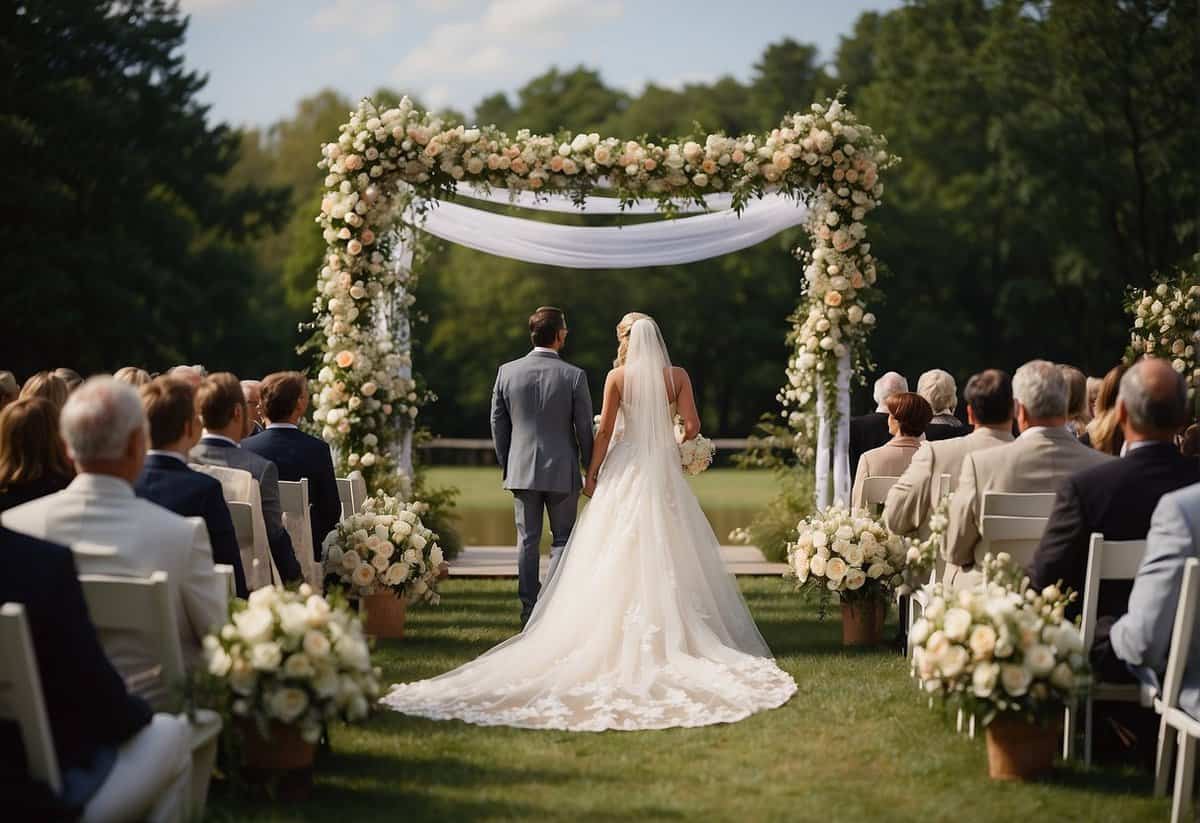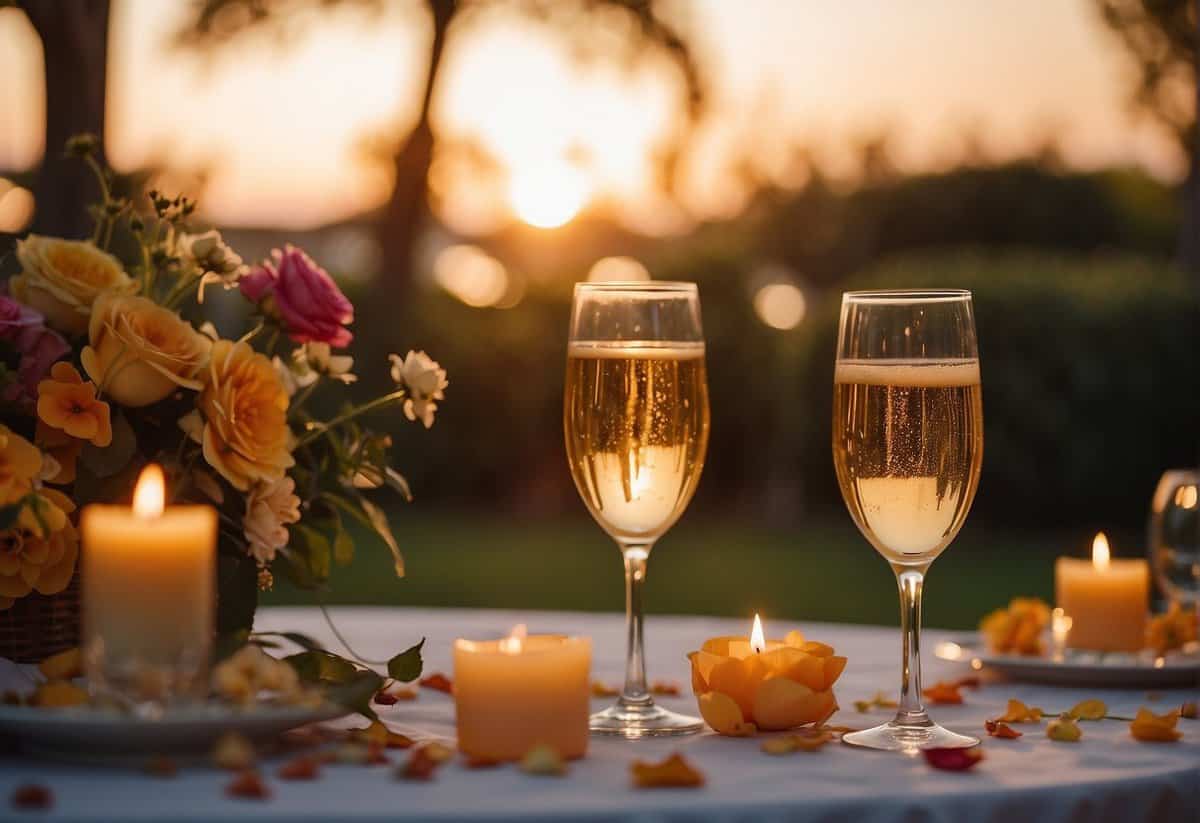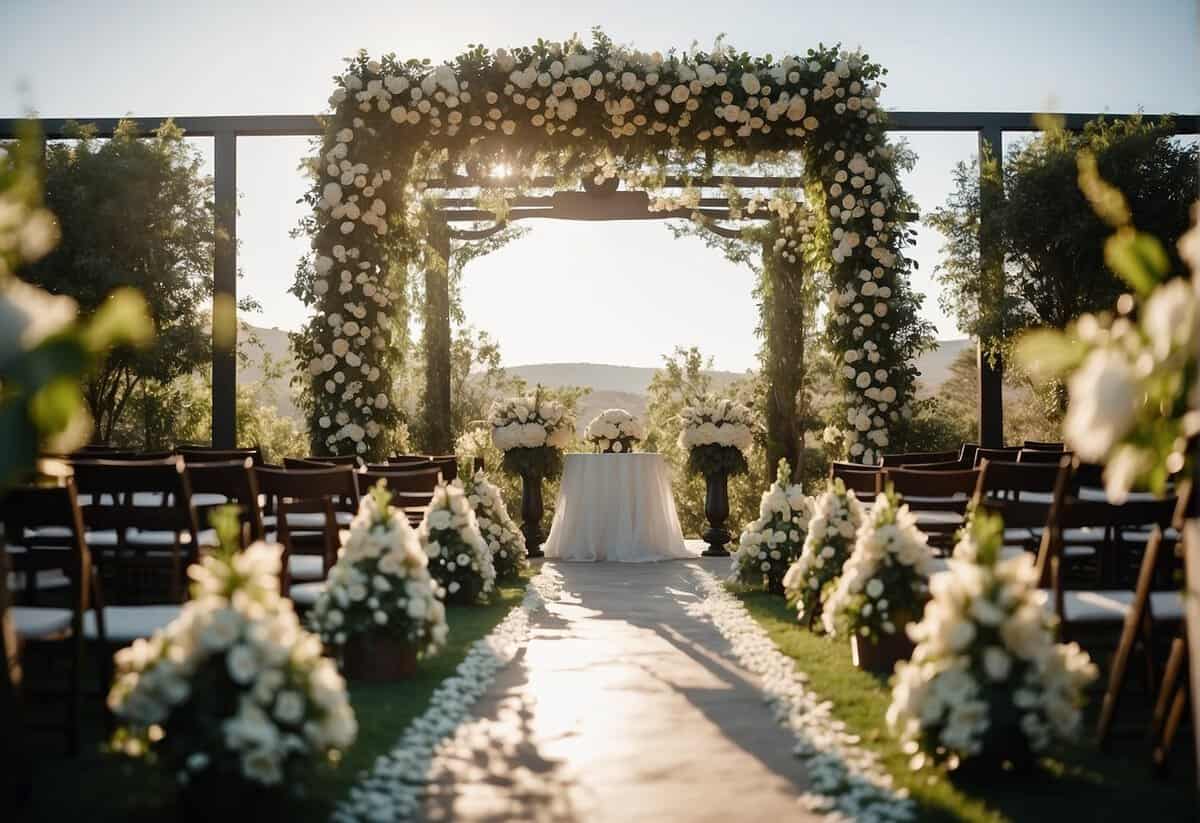What Makes a Wedding a Wedding? Key Elements for Your Special Day
Weddings are as unique as the couples they celebrate, encompassing a wide array of traditions, personal touches, and expressions of love. At its core, a wedding is a public declaration of a private commitment, marking the beginning of your journey as a married couple. Whether it’s an intimate backyard ceremony or a grand ballroom extravaganza, the essence of a wedding lies in the exchange of vows, symbolizing the promises you’re making to each other.

On your wedding day, you’re not just hosting a celebration; you’re weaving together various elements that reflect your personalities and shared values. The day is filled with significant moments, from the ceremonial aspects like ring exchanges and cultural traditions to the reception, where guests gather in your honor. Through careful planning and attention to detail, these components come together to create an event that’s as memorable as your love story itself.
Key Takeaways
- A wedding is both a personal commitment and a public celebration.
- The essence of a wedding day is found in the exchange of vows and shared experiences.
- Careful planning ensures that the wedding reflects the couple’s unique love story.
Planning Your Dream Wedding

Embarking on the journey of wedding planning is an exciting time that involves choosing your perfect date and venue, assembling a team of vendors, managing the experience for your guests, adding personal touches that showcase your style, outlining the day’s events, and budgeting effectively.
Setting the Date and Venue
Selecting your wedding date is a significant first step, as it will impact the availability of your desired venue. Think about seasonality, weather, and any significant dates that are meaningful to you and your partner. Once the date is set, research and visit venues, keeping in mind size, location, and ambience that align with your wedding style.
Building Your Team
With a date and venue in place, begin to assemble your wedding vendors. This includes finding a wedding planner, who can help coordinate the details, a photographer to capture the memories, a catering company to craft the menu, and florists to beautify the event. Utilize a planning checklist to track each vendor you need.
Managing the Guest Experience
Your guest list will dictate many aspects of the wedding, from the size of the venue to the number of hotel rooms needed for out-of-town guests. Send invitations early and consider creating a wedding website to keep everyone informed. Plan transportation if needed, and perhaps prepare a welcome bag to make guests feel special.
Details that Make the Day Special
The personal touches you choose, like a signature cocktail or unique decor, will make your wedding truly yours. Decide on a theme and infuse it into elements like music, attire, and even the seating chart. These details reflect your personality and create an unforgettable atmosphere.
The Big Day Timeline
Draft a timeline covering the entire wedding day, from the ceremony schedule to the reception, speeches, and when the photo booth opens. This helps keep the day flowing smoothly and ensures that vendors and guests know what to expect at each moment.
Budgeting and Prioritization
Your wedding budget is the backbone of the planning process. Identify your top priorities and allocate funds accordingly, whether it’s splurging on a dream venue or hiring a band that you love. Continually reference your planning checklist to keep expenses in check and ensure that no detail is overlooked.
Ceremony and Traditions

The fabric of your wedding is woven through your chosen ceremonies and traditions, creating a tapestry that reflects your values and story. From the legalities that legitimize your union to the roles filled by those closest to you, every element contributes to the unique pattern of your celebration.
The Marriage License and Legalities
Before any vows are exchanged, obtaining a marriage license is a critical step. It’s the legal document that signifies your intent to marry, and it’s often signed during a private moment before the public ceremony. The officiant, a person legally allowed to perform weddings, plays a pivotal role in both the emotional and legal aspects of your marriage, solemnizing your wedding and ensuring all legal requirements are met.
Ceremonial Elements
Your wedding ceremony presents a plethora of elements that you can tailor to fit your vision. Traditional aspects like the exchange of vows and wedding bands cement your commitment, while a personalized program can outline the order and significance of each part, enhancing the elegance and meaning for you and your guests.
- Processional: Marks the formal start, with family and wedding party making a grand entrance.
- Opening Remarks: The officiant sets the tone with a greeting and thoughts on marriage.
- Vows: Your heartfelt promises to one another, the core of your commitment.
- Ring Exchange: Symbolizes the tangible commitment you’re making.
- Pronouncement: The official declaration of your marriage by the officiant.
- Recessional: A joyful departure, marking the conclusion of the ceremony.
Customizing Your Celebration
Make your ceremony a reflection of your personal tastes and culture. Merge traditions from both families or create new ones to celebrate your union in a way that is authentically you. From beloved readings to a sand-pouring ceremony or other unity rituals, these personalized touches invite joy and intimacy into the day.
Roles of the Wedding Party
Your wedding party is chosen from your nearest and dearest family members and friends, each playing a specific role in supporting your journey.
- Maid of Honor & Best Man: Your right hands, responsible for leading the bridesmaids and groomsmen and offering support.
- Bridesmaids & Groomsmen: Friends who stand by your side, often helping with wedding preparations.
- Flower Girl & Ring Bearer: Symbolize innocence and carry key elements of your ceremony.
- Ushers: Welcome guests and assist with seating, ensuring everyone feels included.
- Matron of Honor: If married, she takes on similar responsibilities to the maid of honor.
Each individual contributes to the overall celebration and ensures the smooth flow of your ceremony, embodying the community that will support your marriage.
Reception Revelries

After the vows comes the celebration, where your reception unfolds as a vibrant tapestry of dining, dancing, and heartfelt toasts. This is your moment to share joy with your loved ones, treat them to a delightful evening, and make memories that last a lifetime.
Feasting and Festivities
Indulge your guests with a sumptuous menu that reflects both your tastes and a touch of elegance. Whether you opt for a formal sit-down meal or a more relaxed buffet, it’s the freshness and flavor that count. Don’t forget to sweeten the festivities with a beautifully designed wedding cake, and consider throwing in some late-night snacks to keep the energy high.
Entertainment and Activities
Music sets the soul of your reception, with selections that should resonate with your story and get everyone onto the dance floor. Add in some engaging activities like a photo booth to capture the silliness, or even a surprise performance to leave guests talking for years.
Thanking Your Loved Ones
Your reception isn’t just a party; it’s also a chance to express gratitude. Speeches and thank-you notes are tangible ways you and your guests can voice appreciation. Personalized favors can also leave a lasting impression, reminding them of the love shared on your special day.
Creating Comfort and Joy
You want everyone to feel at home, so setting up a lounge area with comfortable seating allows for intimate conversations and relaxation. Ensure the staff is attentive, adding to the overall comfort and smooth flow of your reception. Your thoughtfulness in these details will amplify the joy experienced by all.
Final Touches and Post-Wedding Reflection

As your wedding concludes, it’s the intricate details and sentiments preserved in keepsakes that carry the joy of the day into the future. Reflecting on your celebration helps to appreciate the role of family, friends, and professionals who shaped your special day.
The Keepsakes
Photographs are the canvas of your wedding’s memory, capturing smiles, dances, and tender moments. Enlist a skilled photographer to secure these timeless pieces. Don’t forget the fun and spontaneous shots from a photo booth, which add a playful element to your keepsakes.
- Choose an album: Select a beautiful album to house your photos, showcasing the narrative of your day.
- Store physical mementos: Consider a decorative box for storing physical items like your invitation, dried bouquet, or a swatch from your dress.
After the Wedding Day
Post-wedding is a time for celebration and gratitude. Sending thank-you notes to guests and professionals shows your appreciation for their contribution to your celebration.
- Gratitude list: Craft personalized thank-you notes, starting with family and close friends, then vendors and perhaps your wedding planner.
- Registry and gifts: Update your registry if needed and track which guest gave each gift to mention it in your thank-you notes.
- Reflection: Take a moment with your spouse to reflect on the journey—from vision to execution—and the start of your lives together.
Remember, these final tasks are not simply chores; they’re an extension of your wedding’s vision and a way to relive the day’s pleasure.
Frequently Asked Questions

In this section, you’ll find answers to common questions about the various aspects that make a wedding, from the ceremony to the symbolism of rings.
What defines a wedding ceremony?
A wedding ceremony is a formal occasion where two individuals pledge to spend their lives together in marriage. This event is often officiated by a legal or religious figure and symbolizes the start of your marital journey.
What are the traditional elements included in a wedding?
Traditional elements of a wedding can vary widely but usually include the exchange of vows, the giving and receiving of rings, participation in religious or cultural rituals, and a proclamation of marriage by the officiant. Understanding these traditional wedding elements can help you decide what to include in your special day.
How do wedding receptions differ from the ceremony itself?
While a wedding ceremony is about the formal union of you and your partner, the wedding reception is a celebration of this union with your guests. It typically includes dining, music, dancing, and speeches in honor of the newly married couple.
What role do wedding rings play in a marriage celebration?
Wedding rings serve as a visible symbol of the commitment you make to each other during your wedding ceremony. They are worn to signify your marriage to the world and are often exchanged during the vows.
What’s typically included in a heartfelt wedding speech?
In a heartfelt wedding speech, expect to hear personal anecdotes, expressions of love and support for the couple, and well-wishes for their future together. The speaker usually shares memorable moments and celebrates the bond that you and your partner share.
How can one differentiate between a legally recognized marriage and a wedding ceremony?
A legally recognized marriage is a binding contract between two individuals that is recognized by the government, whereas a wedding ceremony is the social event where this contract is initiated. The ceremony can be religious or secular, but without the legal aspect, it does not constitute a legally recognized marriage.

